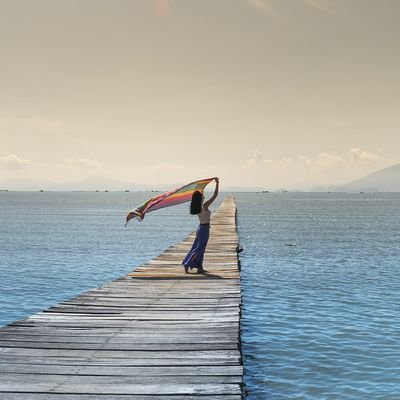Cruise-ships were an early casualty of the COVID-19 pandemic, with several high-profile cases of outbreaks. Cruises are currently on hold all around the world, but what changes will COVID-19 force upon the industry when they are safe to resume trips?
Self-service buffets will be a thing of the past
Self-service buffets have long been associated with cruises, but eating on board a cruise ship is likely to change dramatically in the wake of COVID-19. Passengers almost certainly won’t be allowed to serve themselves anymore, to remove the risk of contamination from multiple people using the same serving utensils and coming in close proximity to the food eaten by everyone on board. Buffets will either be temporarily scrapped in favour of serving meals direct to tables, or crewmembers will serve the food from the buffets. Self-service drink stations will also be manned by crewmembers wearing the appropriate PPE.
Trips may be shorter
Different destinations will reopen at different times and people will be less inclined to travel to far-flung destinations in case of a second wave of the virus. Subsequently, cruise itineraries are likely to be shorter than they were previously, as people get used to travelling again.
Different destinations
As well as cruise trips being shorter, they’re also likely to take in different routes than regular passengers are used to. Routes are likely to depend on which areas of the world open up for tourism first, as some ports may not open again until 2021. Cruise companies will also have to consider where they begin their journeys, as airlines may not operate to the usual hubs, and people may not want to fly as far as they used to. Companies may offer more, shorter trips disembarking from homeports that are easy to reach by car.

Less crowded ships
Almost certainly, due to both social distancing precautions and people being less likely to want to travel, cruise ships will be less crowded than usual. There are likely to be rules in place to forbid cruises operating at full capacity to minimise the risk of transmission of the disease. All aspects of cruises will have to take into account social distancing, including seating at cinemas and in restaurants, leisure activities onboard and leaving some cabins empty.
Restrictions on who can embark
There are likely to be new restrictions put in place to say who can take a cruise. Ships may become off limits to older passengers or those with pre-existing medical conditions who are at most risk of the coronavirus. Health screenings and possibly temperature checks could take place before passengers could board, monitoring whether each individual is at risk of spreading the virus. Passengers could have to check their temperatures regularly during the course of a cruise. Documentation to show immunity or a vaccination certificate could also be required in the future.
Emma Lavelle is a UK based writer and photographer and has her own blog Field and Nest.















